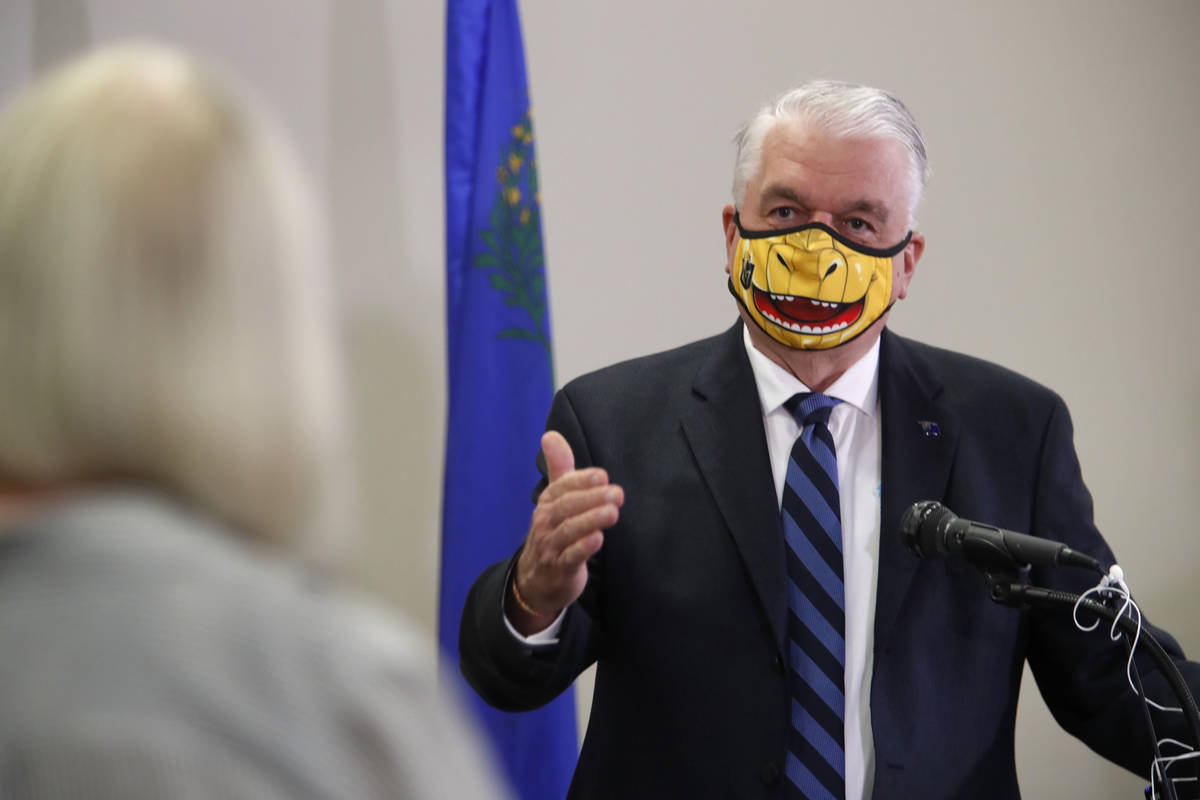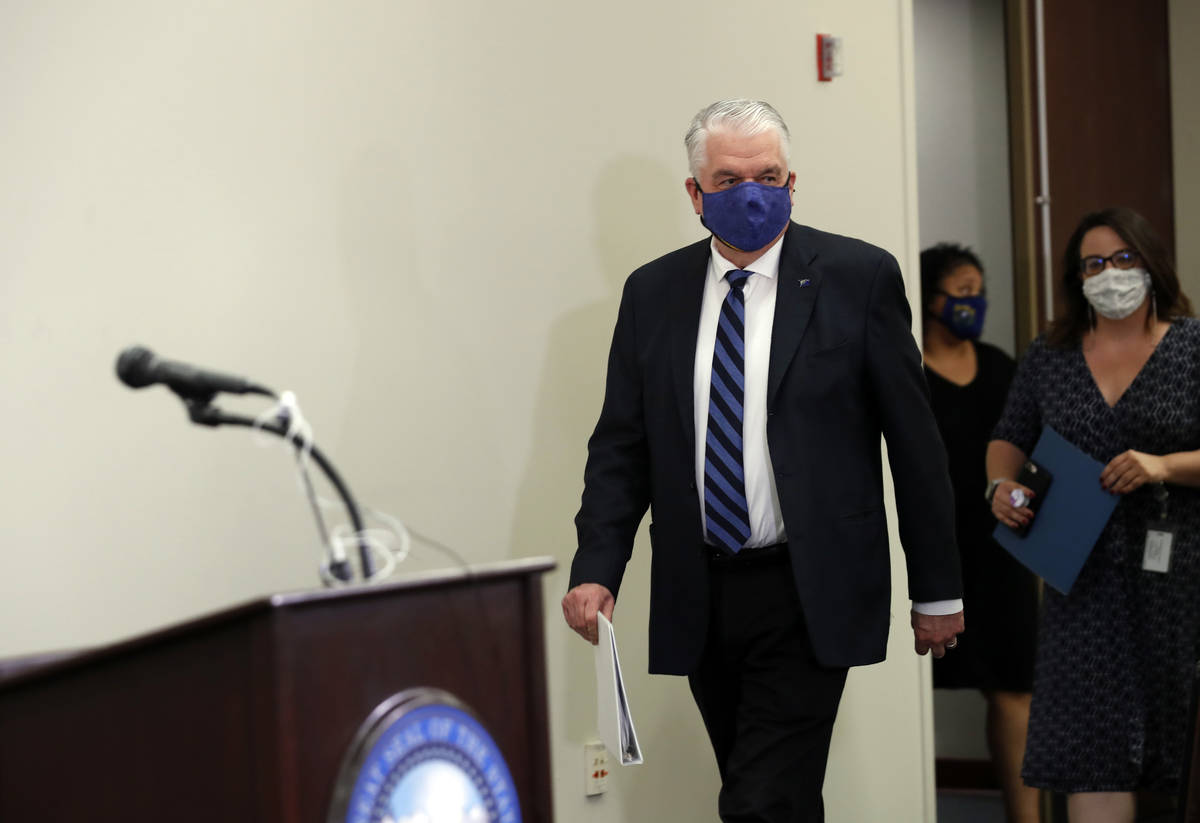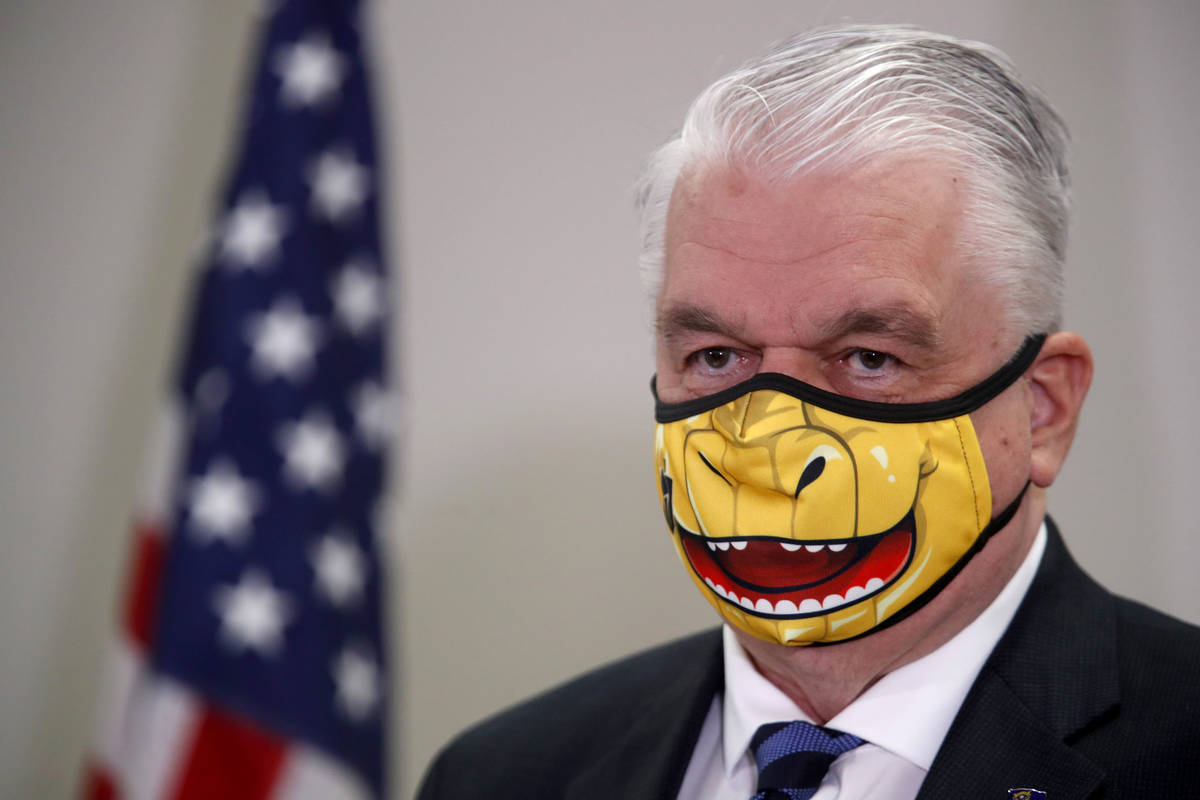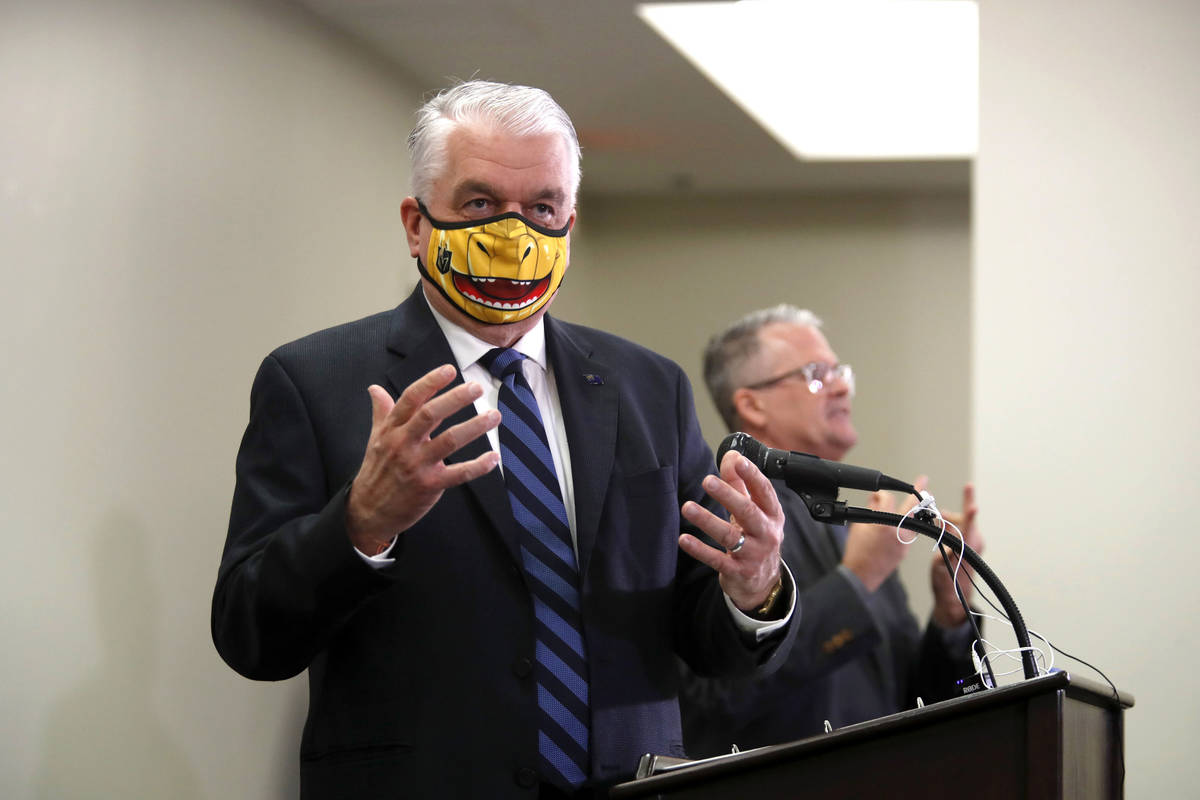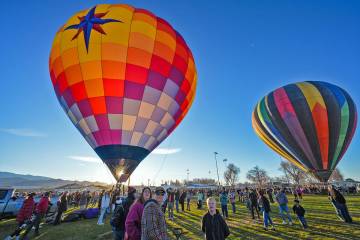Sisolak loosens COVID-19 rules on indoor, outdoor gatherings
Nevada is substantially loosening its COVID-19 rules on large gatherings for both indoor and outdoor events and will allow for a limited number of spectators at sporting and other live entertainment events as part of a continued relaxation of restrictions announced by Gov. Steve Sisolak on Tuesday.
Starting Thursday, the gathering limit for indoor and outdoor events will be raised to no more than 250 people, up from the 50-person limit implemented in May.
But there are several exemptions that could allow large venues, such as Allegiant Stadium, the new home of the Las Vegas Raiders, large churches and even convention centers to host substantially more people — so long as those attendees could maintain and follow social distancing standards and a slew of other requirements.
Those exemptions could provide a boost to Nevada’s tourism-driven economy that was ravaged by the COVID-19 economic shutdown.
Sisolak noted the downward trend in public health metrics, specifically citing the drop in COVID-19 hospitalizations and in the 7-day rolling average for the state’s testing positivity rate of 7.8 percent as of Sunday, a significant drop compared to the 15.8 percent seen on July 9.
“Nevada’s confirmed COVID-19 hospitalizations have been on an overall downward trajectory since Aug. 4, a total of 55 days,” Sisolak said. “The impact of the mitigation measures, such as face coverings and proper social distancing, are working. You are making a difference.”
New rules
Under the new directive, which was issued Wednesday, venues with a maximum capacity of fewer than 2,500 people will have to adhere to the 250-person limit or 50 percent capacity, whichever number is lower. This applies to most retail businesses, restaurants and similar venues.
Facilities with capacity limits greater than 2,500 will be allowed to host 10 percent of their total capacity, provided they follow requirements for spacing out groups and receive approval from both the local health authority and the state oversight authority.
Using the 65,000-seat Allegiant Stadium for example, if approved by local and state authorities, the stadium could host up to 6,500 spectators. Those spectators would have to be limited to groups no larger than six people, and those groups would have to be separated into numerous sections in order to meet the social distancing requirements.
Those requirements would include splitting fans into sections of no more than 250 people and a plan to ensure that people seated in those sections do not “cross-pollinate,” which means separate entrances and exits, and section-specific restrooms, concessions and workers.
Larger places of worship could also have more parishioners beyond that 250 limit inside their building under certain circumstances. If those churches have multiple large rooms or convention areas, they could host multiple groups so long as those rooms in those areas met the 250-person or 50 percent capacity limit.
Conventions will again be permitted under the directive, with attendees capped at 250. But, similar to larger entertainment events, conventions could apply to host up to 1,000 attendees. Those conventions would have to be able to keep the conventiongoers in separate groups of no more than 250 people, and those groups must be separated by floor-to-ceiling walls and have separate facilities.
The new limits do not include staff or entertainers, meaning that only the attendees will be counted toward the capacity limits. Other COVID-19 restrictions, such as requiring attendees to wear face coverings, will remain in place.
Two of Las Vegas’ larger annual sporting events, the National Finals Rodeo and PBR World Finals, recently announced that they would be hosting their events this year in Texas, where many restrictions had already been lifted.
Sisolak on Tuesday made a direct plea to planners of events, conventions and conferences who were also thinking about holding their events in another state, noting Nevada’s recently passed worker protection and business liability protection bill and saying that he believes Nevada will be the safest place for them to host their events.
“Before you make a decision, understand that Nevada is not only open for business, we plan to be open for the long term. We are focusing on your safety, and providing you with a great experience. But a safe, great experience,” Sisolak said. “We will be the safest destination to bring your employees, customers and families. We will open up in a safe, constructive manner where you will feel safe, your families will feel safe, and all of your event participants will feel safe.”
Immediate impacts
UNLV announced that it intends to submit a plan that would allow fans to attend Rebel football homes games this fall.
“Our student-athletes have been working extremely hard in preparation for the chance to compete and they are excited to represent our great city,” UNLV Athletic Director Desiree Reed-Francois said. “We are enthused that they may have an opportunity to play in front of fans in our incredible new stadium.”
The Raiders had previously said they intend to play the 2020 NFL season without fans in attendance.
But officials at Las Vegas Motor Speedway were not allowed to permit fans to attend the NASCAR Cup Series race over the weekend.
“It’s almost exactly what we were requesting a month ago,” Speedway President Chris Powell said. “We would have done everything we could have possibly done to comply.”
The speedway made myriad changes to satisfy NASCAR protocols and provide race fans with a safe experience. “We certainly would have made every effort to have lived by the guidelines and have had fans at the event,” Powell said.
Rolling back regulations
The announcement is the latest rolling back of COVID-19 related restrictions in Nevada in recent months.
The state started to peel back several COVID-19 restrictions, including letting bars and taverns reopen, as the public health data started to trend in an encouraging direction after peaking in mid-July.
Clark and Nye counties recently were dropped from the list of areas at elevated risk of transmission due to the increase in testing and decrease in positivity rates. The state’s rate of hospitalizations for COVID-19 patients has also been trending downward.
Sisolak praised Nevadans for continuing to follow the state’s social distancing guidelines, which he said allowed the state to get to this point.
“These results did not come about by way of chance or good luck. They came about as a result of hard work on behalf of nevada residents, who day in and day out are practicing the social protocols that we asked them to do,” he said.
Contact Capital Bureau Chief Colton Lochhead at clochhead@reviewjournal.com. Follow @ColtonLochhead on Twitter.


